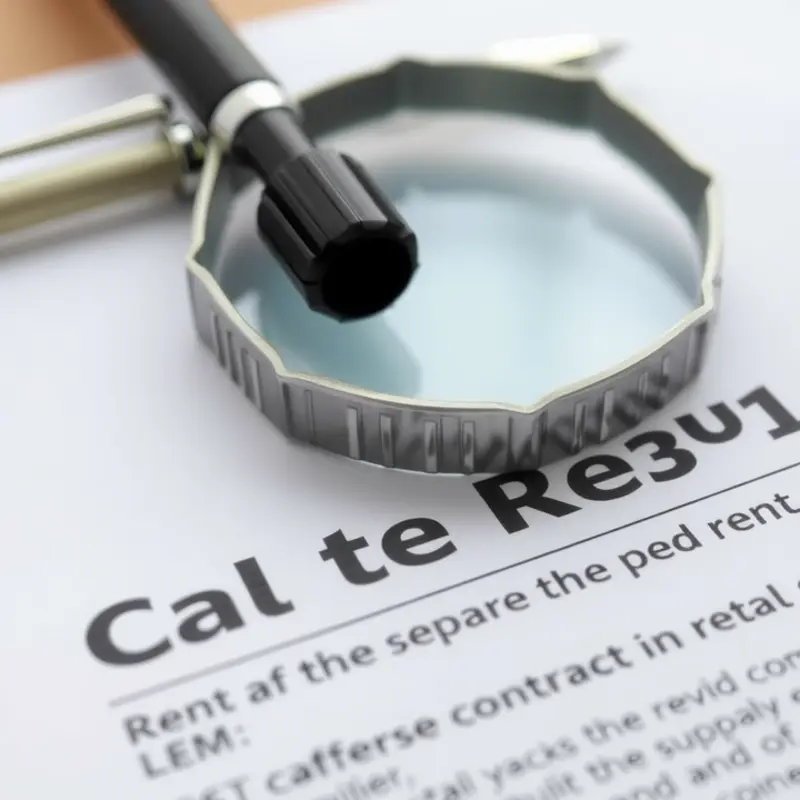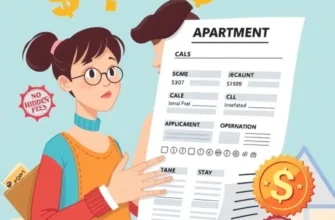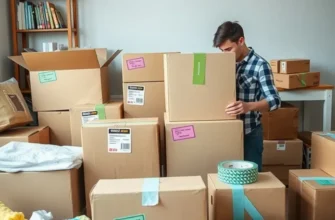Renting your first home can feel like diving into a pool of paperwork without knowing how deep it is. The rental contract is the lifeguard (and the swimsuit you wish you didn’t wear) that keeps you afloat, but it can also be massively overwhelming. With clauses that sound like they were written in a different language, it’s no wonder many newbies throw their hands up and sign without reading. Fear not! Understanding your lease agreement doesn’t require a law degree or a crystal ball. From the fine print to the big-ticket items, we’re here to break down this essential document so you can move in with clarity and maybe a few chuckles. After all, knowledge is power—and it’s a lot easier to argue with your landlord when you know what you’re talking about. Let’s dive into how to decode that dense legalese and spot the hidden traps lurking in your rental contract!
The Basics: Understanding Lease Lingo

If words like ‘tenancy’, ‘abatement’, or ‘indemnity’ make you want to hide under your bed, you’re not alone. Lease agreements are known to house a labyrinth of legalese that can stump even the most avid wordsmiths. Fear not, dear renter! We’re here to break down the basics, infusing a dash of humor along the way.
Lease Agreement: Think of this as the ultimate rulebook for living in your new apartment. It spells out all the guidelines you agree to follow during your stay. Ignore it at your peril!
Security Deposit: No, this isn’t a game of trust falls. It’s the chunk of change you fork over to assure your landlord you won’t leave the place looking like a demolition site. Need more info on this? Check out our security deposit laws guide.
Renters Insurance: Imagine if Super Mario decided to insure his power-ups. Renters insurance is your golden level-up, protecting your belongings against unexpected mishaps like theft or natural disasters.
Premises: ‘Premises’ isn’t just a fancy word; it’s the whole shebang! It refers to the rental property covered under your agreement. Everything inside your rented kingdom falls under this term.
Rent Due Date: Miss this, and it’s like forgetting your best friend’s birthday—potentially unforgivable unless you’ve got a good reason! Rent is typically due on the first day of each month.
Late Fees: A little monetary slap on the wrist if you miss the rent due date. These fees are meant to be a nudge to pay on time, keeping both parties happy.
Quiet Enjoyment: Sounds like a yoga class, right? It means you have the right to peace and quiet in your space, free from unreasonable disturbances or Sunshine and Rainbows Yoga Classes without your approval.
Utilities: These cover essential services like water, electricity, gas, and sometimes even trash collection. Who pays for these will often vary, so check your lease closely to see if you’re footing these bills or if they’ll be paid by your landlord.
Abatement: This is a discount on your rent that may be applied under certain conditions, like during major repairs. It’s the landlord’s way of saying ‘hang in there’ when the going gets tough.
Indemnity: A big word that essentially means if someone trips on your Rug of Doom, they can’t hold your landlord accountable. You take responsibility for your guests’ safety.
Understanding lease terminology can greatly enhance your rental journey. It’s less about becoming a legal eagle and more about knowing the landscape you’re wandering through. With these terms tucked neatly in your mental toolbox, you’ll navigate your lease with the swagger and serenity of a rental pro. Don’t worry if you’re still finding your feet; the next chapter will clear more hurdles on your path to becoming a confident renter.
The Fine Print: What to Look For

Congratulations! You’ve maneuvered through the initial leasing labyrinth. Now, let’s talk about those pivotal sections in your rental contract. The terms you gloss over? They might just be the ones saving you from future headaches.
Let’s start with liability clauses. These clauses outline who shoulders the blame—and the bills—when things go awry. Imagine a mysterious leak turning your living room into a swamp. Who pays? Understanding your landlord’s and your responsibilities is crucial here. Often, liability for damages can be a shared responsibility, but know what’s yours. Ask for clarification—and a friendly amendment—if the terms seem biased against you.
Speaking of swamps, ever wonder who’s on the hook for that gurgling toilet or the heater that’s more puberty than appliance? Cue maintenance responsibilities. Contracts should clearly map out who fixes what. Is it your responsibility to snake a clog, or is that a landlord’s task? Typically, landlords handle structural issues, but minor things may fall under your purview. Be sure yours specifies this. Afterwards, check out our Apartment Ventilation Maintenance guide to ensure you’re keeping everything fresh and functional.
Next, dive into the deep waters of termination terms. Everyone loves a good exit strategy, after all! Knowing how and when you can break the lease should be as clear as day. Look for specifics about notice periods, early termination fees, and any clauses about breaking the lease due to job relocation or personal crises. A well-written termination clause may save your bank account from hemorrhaging unnecessary fees. For more details, read about this in our Rental Background Checks.
Be wary, though, of fine print quirks. Include any odd rules that might cramp your style. Got a two-cat household? A “no pets” policy can burst that bubble. Want friends to crash sometimes? Some leases prohibit extended stays, or even charge fees. Snagging one too many tall plants? Double-check limitations on apartment alterations.
Finally, be on the lookout for clauses discussing renter’s insurance. It’s often advisable, providing coverage for any damages within your space. Your landlord’s insurance won’t cover your stuff if catastrophe strikes, so ensure your contract either requires—or at least recommends—it.
With these sections decoded, you’re better equipped to tackle leasing woes confidently. After all, beneath every forest of fine print lies the freedom to live smart—and humorously—in your new abode.
Final words
Navigating a rental contract doesn’t have to be a daunting task that sends shivers down your spine. By breaking down the terminology and knowing where to look for important details, you can walk confidently into your next rental adventure. Remember, a little research saves a lot of headaches down the line. More importantly, a well-understood lease means you’re not just signing a piece of paper; you’re signing up for a place you’ll love calling home. So, grab that contract, a cup of coffee, and take your time. You’ve got this!









